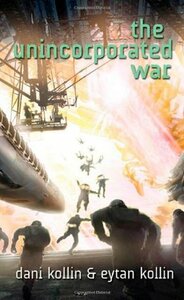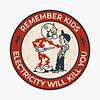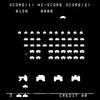Take a photo of a barcode or cover
A bit too much of spaceships blowing up other spaceships for the first 2/3 of the novel, but the end picked up. On to book 3!
I really like this book, it was much better than the first one.
What was a really great book (for the most part) is ruined by the abrupt and completely non-sensical ending. I don't understand how a character who has been the epitome of careful planning and meticulous design would all the sudden break all character definition and do something so incredibly stupid and against his moral fiber. It makes no sense. I love this book for the most part, but the ending seriously made me angry.
adventurous
reflective
slow-paced
Plot or Character Driven:
A mix
Strong character development:
Complicated
Loveable characters:
Complicated
Diverse cast of characters:
Yes
Flaws of characters a main focus:
Yes
I loved pieces of this book, but I couldn’t fully get wrapped up in the twists and turns. I listened to the book on audible and I think the performance of the reader was a bit distracting and didn’t allow me to fully be immersed on the story, but regardless the book ended with way too many loose ends. I understand there’s a war going on but the battles didn’t feel dynamic enough for me. I couldn’t imagine what the battle space looked like or how they were moving in battle even though they spent a lot of time describing the maneuvers and the technology. I think the bits about gravity and the movements being impacted by gravity took me out because I didn’t truly understand the difference in speed based on the level of gravity. I felt like the magic from the world building of the unincorporated man was missing and that this entire book is just a bridge to get to the third book instead of its own stand alone story. Overall there were enough well written and gut wrenching moments to get me through the story, but it was not as good as the first one.
Moderate: Sexual violence
Ugh... I tried. I really wanted to like it. I read the first book and liked it enough to read the sequel and was planning on reading the next two... at first. But I gotta be done. DNF at 60%
The writing is SO bland! There's just too much pointless detail. And the characters are like cardboard. No one is very likeable and there are no endearing moments that make you root for anyone. The only interesting character is mostly used for battle scenes without really delving into who she is. Additionally, the MC from the first book has not only become boring and uninteresting but has lost any fire he had from the first book and just seems depressed.
The two leaders of the fighting factions just give speeches as their main form of dialogue and has become predictable and tedious. I found myself rolling my eyes the second giving a speech was mentioned. They're written as the strategic battle masters but every time they outwitted each other I just thought, "well of course, this is the same way every battle has happened", it wasn't shocking or exciting. It's unpredictability was predictable.
I could say more but seeing that these books aren't interacted with much I'll leave it at that.
Time to move on.
Having just reached the end I just want to scream. I cannot believe the cliff hanger ending. So much has gone wrong for Justin and the alliance. I cannot wait now for the third book.
Overall the book has a very "empire strikes back" feeling with Hektor getting opportunities to best Justin in the galactic spanning "incorporation wars"
Overall the book has a very "empire strikes back" feeling with Hektor getting opportunities to best Justin in the galactic spanning "incorporation wars"
I really like this and am excited to see where it goes. I don't think it quite lived up to the first one, but I never think the second books ever do >.<
In this sequel to The Unincorporated Man, war has broken out between the core planets and the outer civilizations following attempts at force "psych-audits" of the people from the outer alliance and the unincorporated man himself.
First of all, it kills me anytime someone says "anyways." I'm sure in 300 years, as language is living, that could become the proper thing to say, but it's such a little thing to think that the authors did it intentionally. That's like my one huge grammar peeve, and the all characters say it quite often.
I'm really interested in how the avatar's storyline will play out. In the first novel, I thought the avatars storyline didn't really fit and were it taken out, nothing would change, except for the one line where Neela wonders if Justin's avatar is more advanced. In this novel, you can see more of a melding of the two worlds, especially at the end where the avatars finally take action and cause things to happen in the "real" world.
I like that I'm kept guessing over who will win the war. The action scenes are fun, though you know there's always going to be subterfuge on both sides, often multiple time per fight.
Overall, it's a fun read. I never found it boring and look forward to reading the next one. Sometimes they'll try to explain how something in the future became that way which irked me since it reflected a misunderstanding of history and the present, but that stuff is overall a small portion of the novel.
In this sequel to The Unincorporated Man, war has broken out between the core planets and the outer civilizations following attempts at force "psych-audits" of the people from the outer alliance and the unincorporated man himself.
First of all, it kills me anytime someone says "anyways." I'm sure in 300 years, as language is living, that could become the proper thing to say, but it's such a little thing to think that the authors did it intentionally. That's like my one huge grammar peeve, and the all characters say it quite often.
I'm really interested in how the avatar's storyline will play out. In the first novel, I thought the avatars storyline didn't really fit and were it taken out, nothing would change, except for the one line where Neela wonders if Justin's avatar is more advanced. In this novel, you can see more of a melding of the two worlds, especially at the end where the avatars finally take action and cause things to happen in the "real" world.
I like that I'm kept guessing over who will win the war. The action scenes are fun, though you know there's always going to be subterfuge on both sides, often multiple time per fight.
Overall, it's a fun read. I never found it boring and look forward to reading the next one. Sometimes they'll try to explain how something in the future became that way which irked me since it reflected a misunderstanding of history and the present, but that stuff is overall a small portion of the novel.
Is this really what gets past editors now?
Here's what is right with this book - it has an interesting premise and a fairly decent plot structure.
Here is what is wrong with this book:
1. Cardboard Characters.
There isn't a single believable character in this whole book. Not one with realistic motivations or actions. This is what happens when ideologues with no life experience try their hand at social commentary. Bureaucracy is bad - so everyone in the book who represents an organization of any size is bumbling, including those peacetime military or pseudomilitary officers who are now thrown into situations where they need skills of battle. Conversely the military is great - so all military leaders are competent, brilliant, altruistic and self-sacrificing. Having been in the military, and having served combat, these characteristics are annoyingly simplistic drivel.
2. Telling vs. Showing.
How do we know that someone is brilliant. Because we're told over and over and over again that she's brilliant. She's brilliant because the authors say so, because I believe the authors aren't competent enough at their craft to show a character engaging in brilliance. Every once in a while you have to let the readers decide if they like a character - which with these characters is about as significant as deciding if you like cartoons painted on a wall. They had to tell us a character is good or bad because the characters had no engaging motivations worth allowing us to decide for ourselves.
If I'm told someone is brilliant one more time by these authors, I'm tossing the next book in the trash bin.
3. Virtual Reality as human metaphor.
If there's a virtual reality existence with AI, then those beings have no need to pretend to be human - to act human, to look human, to act as slowly as humans. These ridiculous constructs have to wait in security lines to board aircraft for god's sake. Come on. Be creative. Be original. Allow the AI to actually influence the war and its outcomes - don't make them more dumb cardboard characters on a list of endless cardboard characters.
Even Ayn Rand wrote better than this - and that's saying a lot. Of course these books are shadow rewrites of Atlas Shrugged after all.
Here's what is right with this book - it has an interesting premise and a fairly decent plot structure.
Here is what is wrong with this book:
1. Cardboard Characters.
There isn't a single believable character in this whole book. Not one with realistic motivations or actions. This is what happens when ideologues with no life experience try their hand at social commentary. Bureaucracy is bad - so everyone in the book who represents an organization of any size is bumbling, including those peacetime military or pseudomilitary officers who are now thrown into situations where they need skills of battle. Conversely the military is great - so all military leaders are competent, brilliant, altruistic and self-sacrificing. Having been in the military, and having served combat, these characteristics are annoyingly simplistic drivel.
2. Telling vs. Showing.
How do we know that someone is brilliant. Because we're told over and over and over again that she's brilliant. She's brilliant because the authors say so, because I believe the authors aren't competent enough at their craft to show a character engaging in brilliance. Every once in a while you have to let the readers decide if they like a character - which with these characters is about as significant as deciding if you like cartoons painted on a wall. They had to tell us a character is good or bad because the characters had no engaging motivations worth allowing us to decide for ourselves.
If I'm told someone is brilliant one more time by these authors, I'm tossing the next book in the trash bin.
3. Virtual Reality as human metaphor.
If there's a virtual reality existence with AI, then those beings have no need to pretend to be human - to act human, to look human, to act as slowly as humans. These ridiculous constructs have to wait in security lines to board aircraft for god's sake. Come on. Be creative. Be original. Allow the AI to actually influence the war and its outcomes - don't make them more dumb cardboard characters on a list of endless cardboard characters.
Even Ayn Rand wrote better than this - and that's saying a lot. Of course these books are shadow rewrites of Atlas Shrugged after all.
If you liked "The Unincorporated Man" then you'll enjoy "The Unincorporated War", and if you've not read that, you should do so first as the story is directly continued from the end of the first book. I found this an enjoyable, put slightly flawed, follow-up.
The idea of the Avatars, only briefly touched upon in the first book, was interesting and I was looking forward to their world being expanded upon. Unfortunately I have the same problem with the description of the Avatars, their civilisation and behaviour as I did with everything Dan Brown wrote in Digital Fortress, it's often quite cringe worthy. I suspect this is caused by non-"technical" people describing a (somewhat) technical subject. This was enough for me to drop a star from a book.
One major complaint about the audio version is that it's not read by Todd McLaren (I suspect because of a publisher change from Tantor to Brilliance). No slight on Eric G. Dove, who does narrate it, but Todd did an amazing job of voicing the characters in the first book and it was really quite jarring to have them all change, especially Hector.
Merged review:
If you liked "The Unincorporated Man" then you'll enjoy "The Unincorporated War", and if you've not read that, you should do so first as the story is directly continued from the end of the first book. I found this an enjoyable, put slightly flawed, follow-up.
The idea of the Avatars, only briefly touched upon in the first book, was interesting and I was looking forward to their world being expanded upon. Unfortunately I have the same problem with the description of the Avatars, their civilisation and behaviour as I did with everything Dan Brown wrote in Digital Fortress, it's often quite cringe worthy. I suspect this is caused by non-"technical" people describing a (somewhat) technical subject. This was enough for me to drop a star from a book.
One major complaint about the audio version is that it's not read by Todd McLaren (I suspect because of a publisher change from Tantor to Brilliance). No slight on Eric G. Dove, who does narrate it, but Todd did an amazing job of voicing the characters in the first book and it was really quite jarring to have them all change, especially Hector.
The idea of the Avatars, only briefly touched upon in the first book, was interesting and I was looking forward to their world being expanded upon. Unfortunately I have the same problem with the description of the Avatars, their civilisation and behaviour as I did with everything Dan Brown wrote in Digital Fortress, it's often quite cringe worthy. I suspect this is caused by non-"technical" people describing a (somewhat) technical subject. This was enough for me to drop a star from a book.
One major complaint about the audio version is that it's not read by Todd McLaren (I suspect because of a publisher change from Tantor to Brilliance). No slight on Eric G. Dove, who does narrate it, but Todd did an amazing job of voicing the characters in the first book and it was really quite jarring to have them all change, especially Hector.
Merged review:
If you liked "The Unincorporated Man" then you'll enjoy "The Unincorporated War", and if you've not read that, you should do so first as the story is directly continued from the end of the first book. I found this an enjoyable, put slightly flawed, follow-up.
The idea of the Avatars, only briefly touched upon in the first book, was interesting and I was looking forward to their world being expanded upon. Unfortunately I have the same problem with the description of the Avatars, their civilisation and behaviour as I did with everything Dan Brown wrote in Digital Fortress, it's often quite cringe worthy. I suspect this is caused by non-"technical" people describing a (somewhat) technical subject. This was enough for me to drop a star from a book.
One major complaint about the audio version is that it's not read by Todd McLaren (I suspect because of a publisher change from Tantor to Brilliance). No slight on Eric G. Dove, who does narrate it, but Todd did an amazing job of voicing the characters in the first book and it was really quite jarring to have them all change, especially Hector.
I had a real on again, off again relationship with this book. For parts of it, I was forcing myself to go on. But other parts were very engaging. Then I got to the completely lame ending and I really gotta wonder if this book was produced in a hurry after the first one in the series unexpectedly sold well and a trilogy was requested by the publishers... On the other hand, I haven't read the first book either - maybe it was just as lame a cliffhanger.
This is barely a three book on average, think stretches of 2 and peaks of 4 here and there.
This is barely a three book on average, think stretches of 2 and peaks of 4 here and there.








